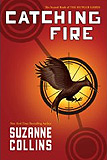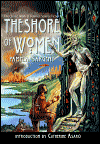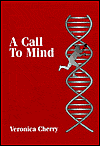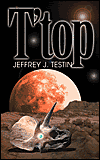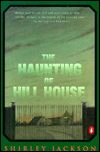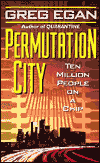
Permutation City, by Greg Egan
Book Review by Richard R. Horton
Greg Egan is one of the most inventive and exciting current SF writers. His SF is distinctly "hard", rife with "cutting edge" speculations, and also generally "through-composed", in that he tries to set his stories in fully-furnished futures (complete with brand-names and with Bruce Sterlingish throwaway ideas), and also in that he tries to examine the full consequences of his ideas, and not just the first consequence, or the most convenient one.
Egan seems to concentrate on three areas of speculation: physics, especially esoteric "structure of the universe" notions, biology, especially notions about the nature of the human brain, and computer science. I've read Egan's first three novels now, and while the first (Quarantine) and the third (Distress) both focused on the physics/biology areas, Permutation City is very heavily a novel about certain computer science related ideas. The main two ideas, closely linked, are completely virtual environments, in which a simulation (or "Copy") of a human brain can be run (including the memories of the living template for the copy, full sensorium simulation, and interaction with other copies and the "real world"); and Artificial Life, arising from sets of rules operating within a computer program.
The novel opens with the "awakening" of a "copy" of a man named Paul Durham. Durham is still alive, and has planned a variety of experiments on his "copy". The experiments involve proving that the subjective experience of the copy cannot distinguish between the hardware, processing speed, algorithm, and even time order of the calculations which make up his "being", as it were. This leads to one of the wildest ideas in the book, one central to the ultimate course the novel takes: that consciousness is "dust": and can be assembled from time- and location-independent "dust motes". This idea was central to the story "Dust", which is the seed for this novel: and I admit that I didn't "get it" then, and I still can't quite get my brain around it. Egan goes on to follow several narrative tracks in parallel: the experiments of Durham and his copy; the efforts of Maria Deluca, a down-at-heels programmer and Autoverse hobbyist (the Autoverse is a sophisticated "universe" built on Artificial Life rules) who is approached by Durham to design an extended "Universe" which can support advanced life; the virtual life of Thomas Reimann, a guilt-stricken billionaire copy trying to atone for a terrible sin of his youth, and looking for a safe longterm (computing) location to allow him leisure to atone; and Peer, a poor "copy" (one who cannot afford very fast processors or much processing time) who is lured by his copy girlfriend to hide out in a rumored new "universe", with guaranteed immortality, and realistically unlimited computing resources.
The narrative tracks eventually converge, though somewhat uneasily: in particular Reimann's story is never really integrated with the rest of the novel. Plot-wise Permutation City isn't wholly successful, though Egan does push his ideas to the limit, and he does so in a way which is well-married to the main plot-line, and continually exciting. (Indeed, one of the notable features of Egan's short fiction, IMO, is that he so often manages to integrate story and idea: so that the story shows us the idea. (Sometimes, perhaps, in an excessively didactic fashion.) Quarantine and Distress, for me, had thriller storylines which distracted from the central themes: but Permutation City's storylines all support and enhance the central themes.)
But the interest in the novel, and the aspects of this novel which make it, IMO, Egan's best, and one of the better SF novels of the past few years, is the constant exploring of the consequences of the central ideas: thus we have the copies controlling their mental states so accurately that they can take up hobbies by conscious decision, be literally perfectly content with the hobbies for years, then switch; and we have the detailed description of the Artificial Life within the Autoverse, including a neat life form which communicates in ways analogous to the operation of a computer program; and, most importantly, each of the main characters is exploring (or revealing to us) different ideas about the nature of personal identity: where does identity lie when you are a "simulation" of a real life person? when you can control your moods and interests at the processor level, as it were? when you are rerunning your "program" in an infinite loop? when your program is halted? when the physical components of your "processor" are separated in both time and space? when your entire universe is a computer program running in another universe?
In addition, Egan uses images and turns of phrase throughout which nicely support his main ideas. Early on, for instance, we encounter a portion of real-world Sydney which includes a trompe l'oeil mural of a lovely city park in the midst of a decaying warehouse district: the juxtaposition with the images of simulated city life in a virtual environment is striking. There is also the perhaps too clever chapter headings: permutations of "Permutation City" which actually have meaning (if you stretch): especially one somewhat changed one in the middle.
All in all, a highly recommended novel.
| Permutation City, by Greg Egan on Amazon |
Permutation City, by Greg Egan on Amazon

| Comments on Permutation City, by Greg Egan |
| There are no comments on this book. |
